Eating These 9 Foods Will Boost Your Metabolism and Burn Fat

The faster your metabolism, the faster your body converts food to energy, or burns calories—”which explains why some people can eat a lot and not gain extra pounds,” explains Harvard Health Publishing. While a slugglish metabolism alone isn’t responsible for weight gain—poor diet and lack of exercise are major culprits—as we get older, our metabolisms all slow down. You can’t turn back the clock, but you can make some adjustments to your diet that can help increase metabolism and burn fat. To find out what you should be eating, we consulted dietitians, who share their best advice ahead.
RELATED: This Food Can Trigger a 15% BMI Weight Loss—But You’re Probably Not Eating It.
1
Spicy foods
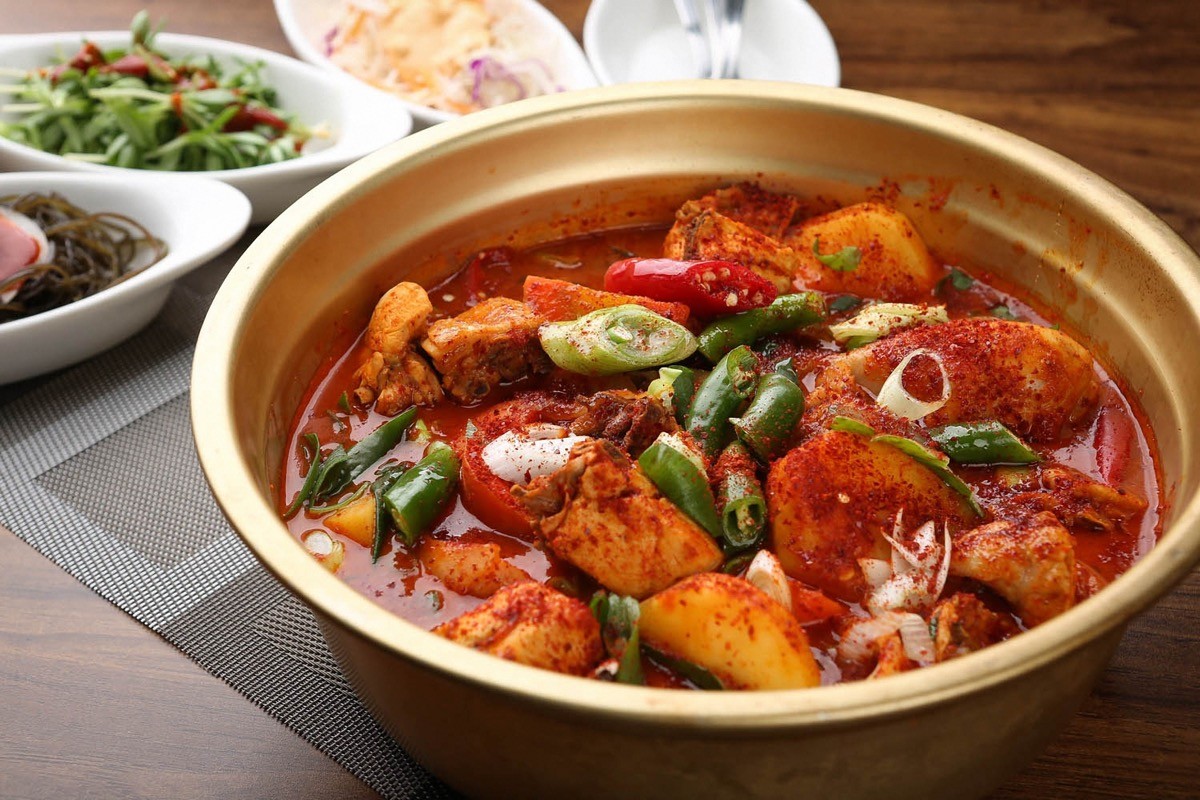
Of everything on this list, experts most recommend spicy foods to rev up the metabolism.
Kelsey Kunik, RDN, a registered dietitian and nutrition advisor for Zenmaster Wellness, explains that hot peppers, whether eaten on their own or in hot sauce, contain capsaicin, “a compound that gives your metabolism a slight boost to burn more calories.”
A 2022 study published in the journal Pharmaceuticals concluded that capsaicin could not only boost your metabolism but also help suppress appetite in the short term and restore healthy gut bacteria, promoting healthy weight management.
2
Lean protein
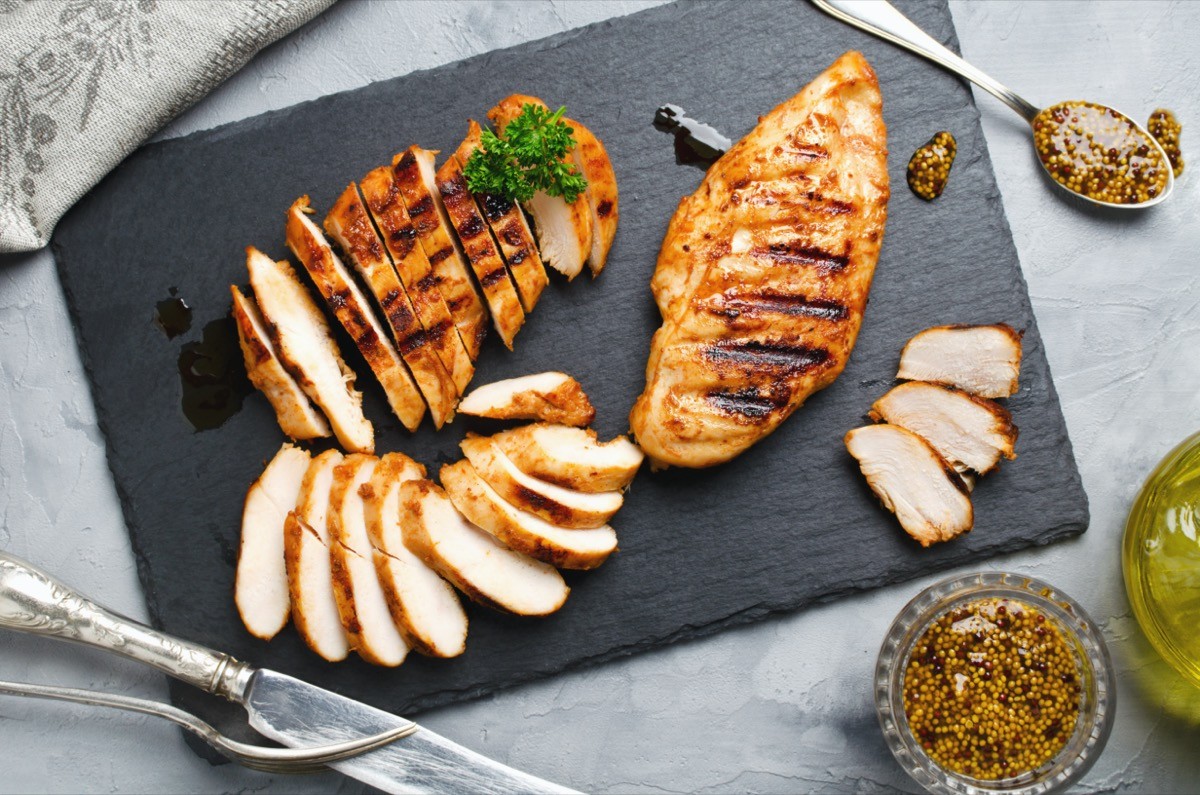
“Protein is a bit of a rockstar when it comes to metabolism,” shares Elizabeth Katzman, FDN, a functional diagnostic nutrition practitioner, somatic coach, and founder of Strong Choices.
“Your body burns more calories digesting protein than it does with carbs or fats—this is called the ‘thermic effect,'” she explains. “So, loading up on lean protein sources like chicken breast, fish, turkey, and beans can give your metabolism a slight edge. Plus, it keeps you feeling full longer—win-win!”
3
Salmon
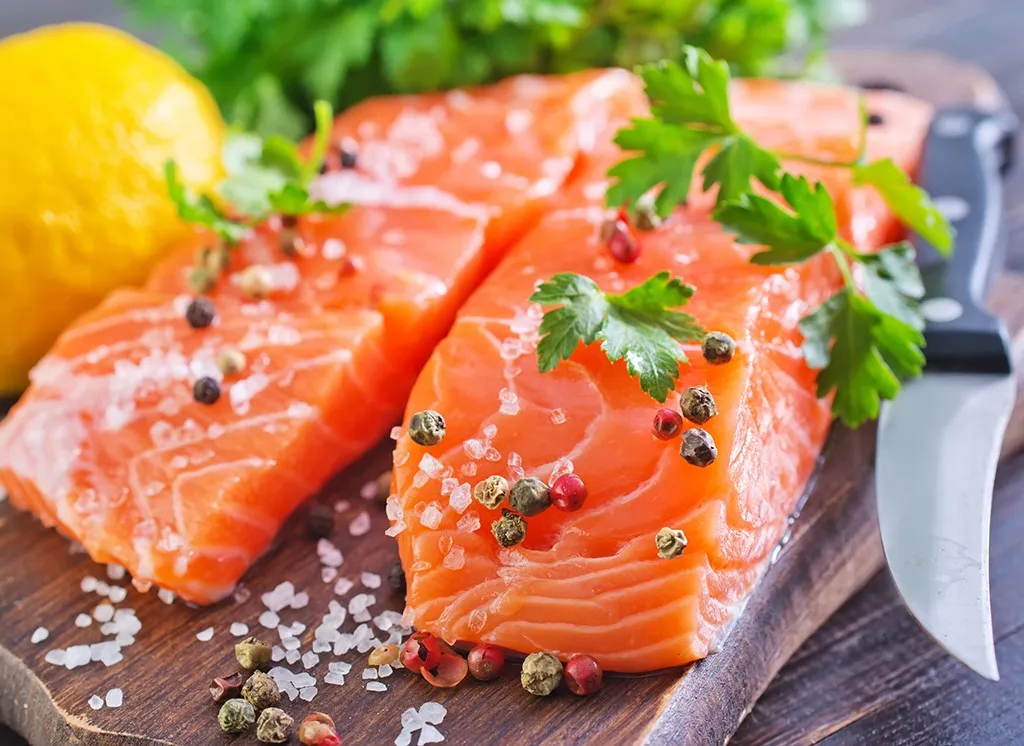
Speaking of protein, salmon is another favorite among dietitians, more so because it’s rich in omega-3 fatty acids.
These healthy fats have been linked to several benefits, including improved cardiovascular health, cognitive health, and reduced inflammation.
In addition, a 2021 meta-review found that omega-3s can increase resting metabolic rate due to their role in fat metabolism in the body.
Kinesiologist Matt Gallant, co-author of The Ultimate Nutrition Bible and CEO of BIOptimizers, adds that the omega-3s in fatty fish like salmon and mackerel “regulate hormones like adiponectin, which helps improve fat metabolism.”
Salmon is also a good source of protein, which can help you feel full and satisfied, potentially leading to reduced calorie intake overall.
RELATED: Eating These 7 Foods Can Lower Your Blood Sugar, Doctors Say.
4
Green tea

Green tea contains uniquely powerful antioxidants called catechins, more specifically epigallocatechin gallate (EGCG), “which may increase the activity of certain enzymes responsible for fat burning, which may aid in weight loss and improve overall metabolic function,” says Michelle Routhenstein, RD, cardiology dietitian at EntirelyNourished.com.
And though both caffeinated and decaffeinated green tea offer this benefit, the former can further metabolic burn since caffeine increases energy expenditure, according to a 2010 study.
Moreover, as Nichole Dandrea-Russert, RDN, plant-based dietitian at purelyplanted, previously shared with Best Life, a 2004 study found that the catechins in green tea, when present during exercise, increased “body fat utilization for energy expenditure,” leading to reduced body fat.
“Green tea also contains the amino acid L-theanine, which has been shown to promote relaxation and improve sleep, both of which may support healthy metabolism,” Dandrea-Russert added.
5
Coffee

It’s no secret that many of us rely on coffee for a daily energy boost. But did you know that it can also help you burn more calories? That’s because caffeine is a natural stimulant that can increase metabolism and help burn energy more efficiently.
“Drinking at least one cup of strong coffee per day, or having an equivalent amount of caffeine, could increase the amount of fat you burn while exercising,” says Kunik.
A 2021 study tasked a group of individuals who weren’t accustomed to more than 50 milligrams of caffeine daily (roughly half a cup of coffee) consume the equivalent of one cup of strong coffee before endurance exercise. Comparing the results with exercise and a placebo, researchers found that caffeine increased the amount of fat burned during exercise.
6
Ginger
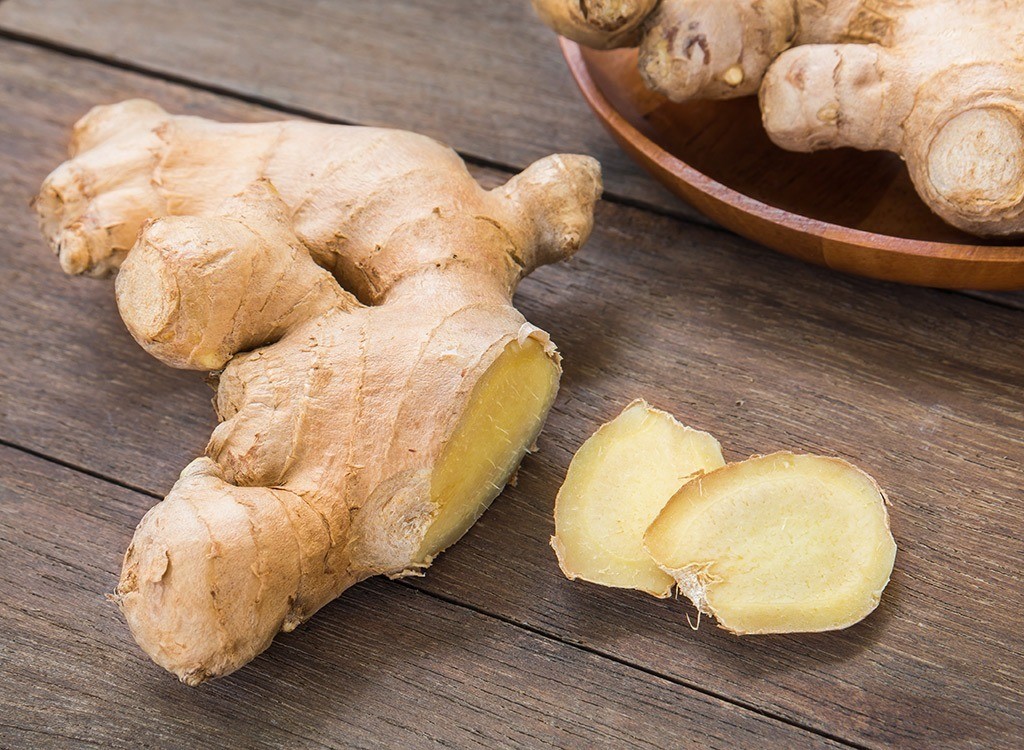
Ginger is a root that’s been widely used for its medicinal properties for centuries. It’s been shown to have anti-inflammatory and antioxidant properties and may also help you burn more calories.
According to a study published in the journal Metabolism, participants who consumed ginger burned more calories and had greater fat oxidation compared to those who didn’t consume ginger.
“Eating ginger or drinking ginger tea with a meal could increase the amount of energy it takes to digest your food and help increase feelings of fullness. The warming effect of ginger is similar to that of hot sauce, although less spicy and better tolerated by some people,” says Kunik.
RELATED: 10 Foods That Lower Cholesterol, According to Dietitians.
7
Whole grains
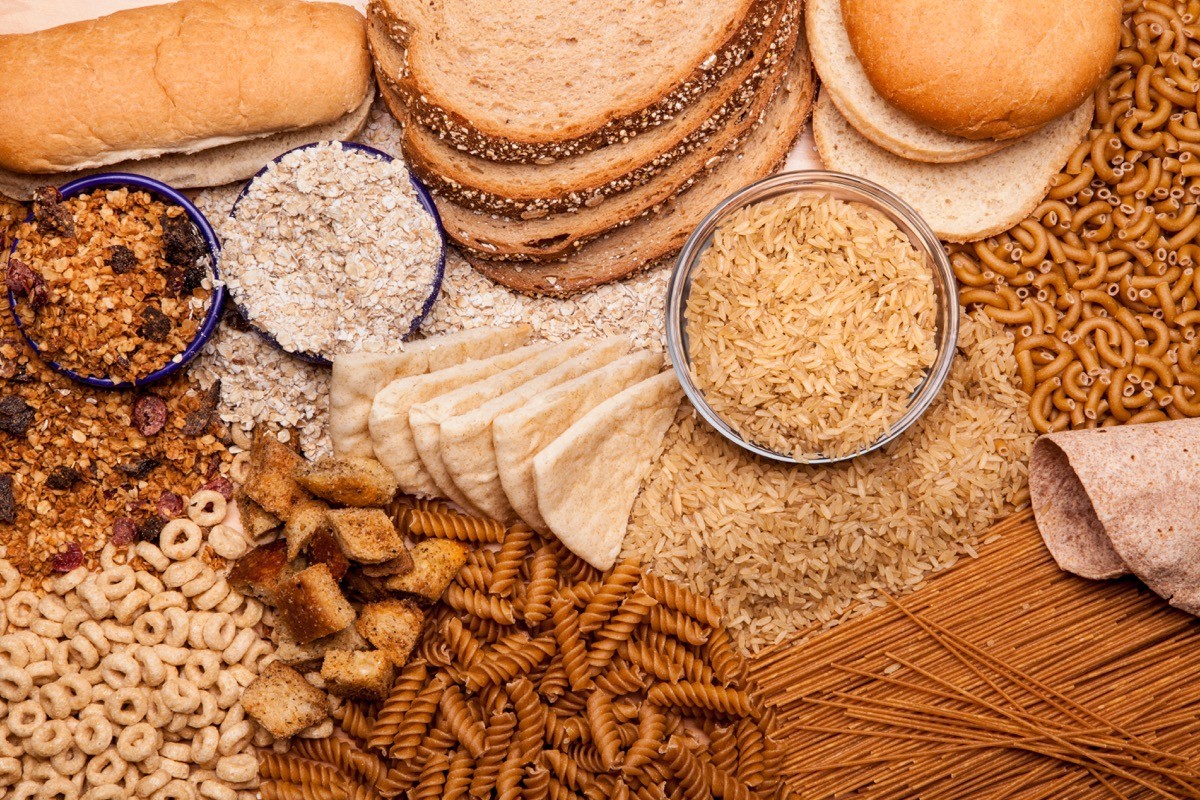
Registered dietician nutritionist Susan Kundrat, RDN, LDN, explains that when we eat whole grains—like oatmeal, quinoa, whole wheat bread, and brown rice—”our bodies work harder to digest these foods than refined carbohydrates due to the high fiber content.”
Gallant also points out that “fiber feeds your gut microbiome, helps keep you fuller longer, and helps regulate your blood sugar.”
8
Iron-rich foods
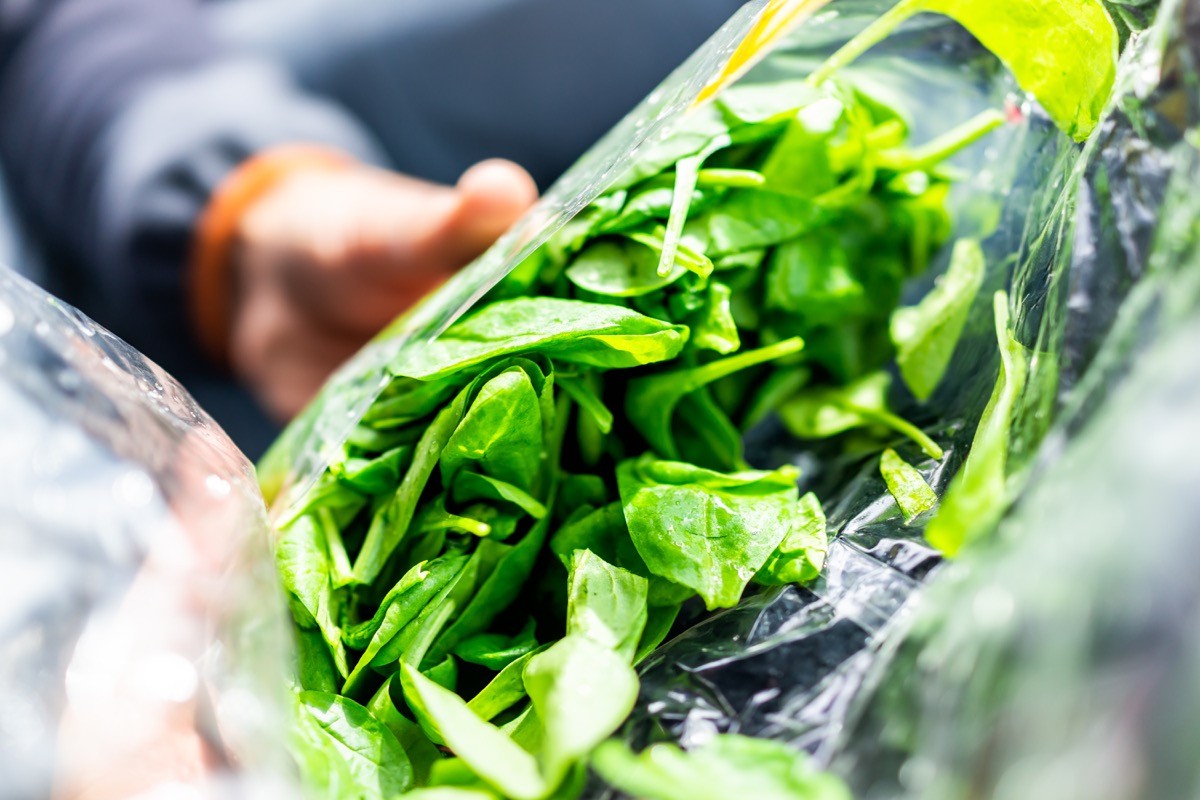
If your body is low on iron, it could cause your metabolism to slow down, notes Katzman, who explains that “iron is a key player in energy production and metabolism because it helps transport oxygen throughout your body.”
She suggests including iron-rich foods like lean red meat, spinach, and lentils in your diet.
9
Apples

Routhenstein explains that apples, particularly their skin, “are a great source of ursolic acid, a compound that may help to increase the production of brown fat.”
Cleveland Clinic defines brown fat (brown adipose tissue) as “a type of body fat that regulates your body temperature in cold conditions.”
“Brown fat burns more calories than white fat, helping to speed up metabolism and promote fat loss,” says Routhenstein.
In fact, a 2023 study found that overweight mice who consumed ursolic acid had a positively altered gut microbiota as well as increased metabolism.